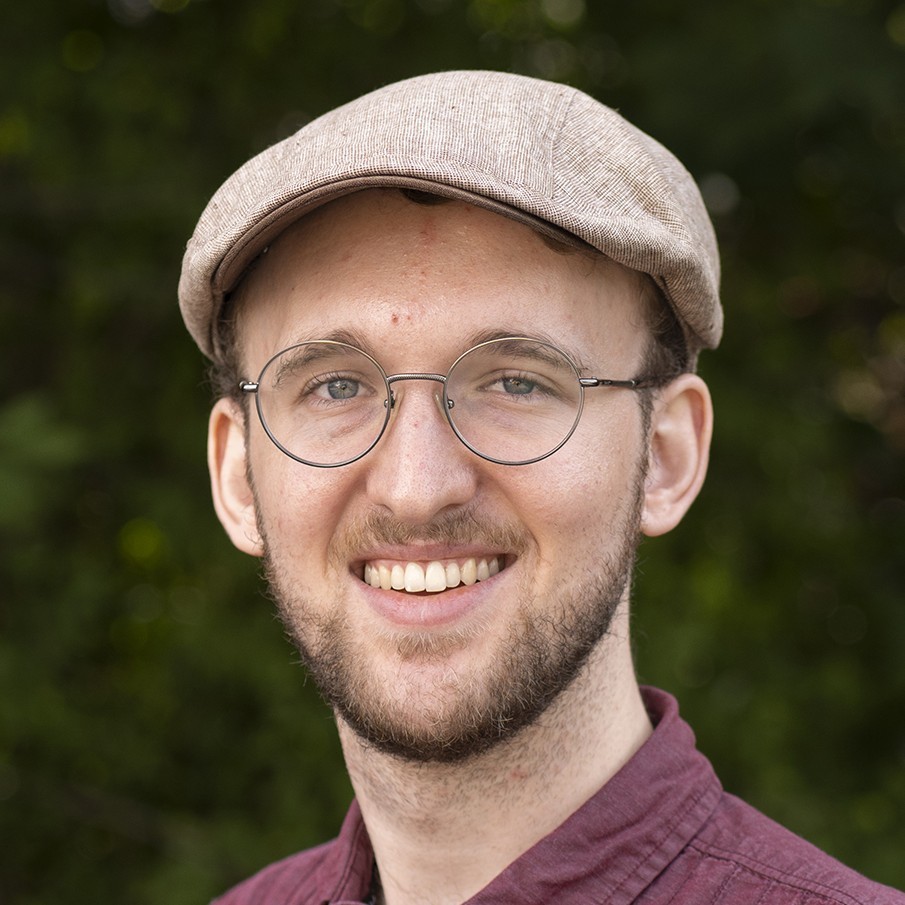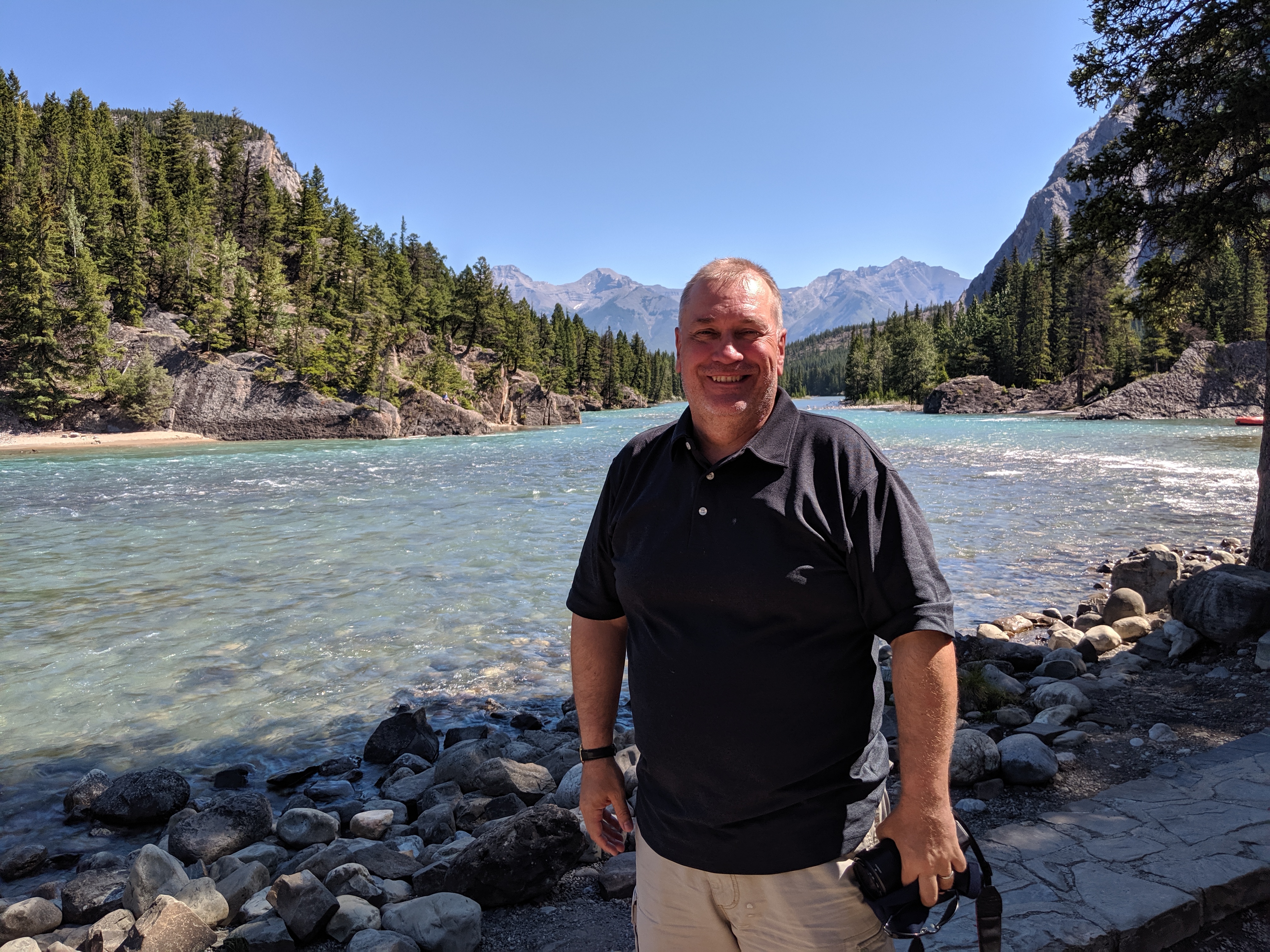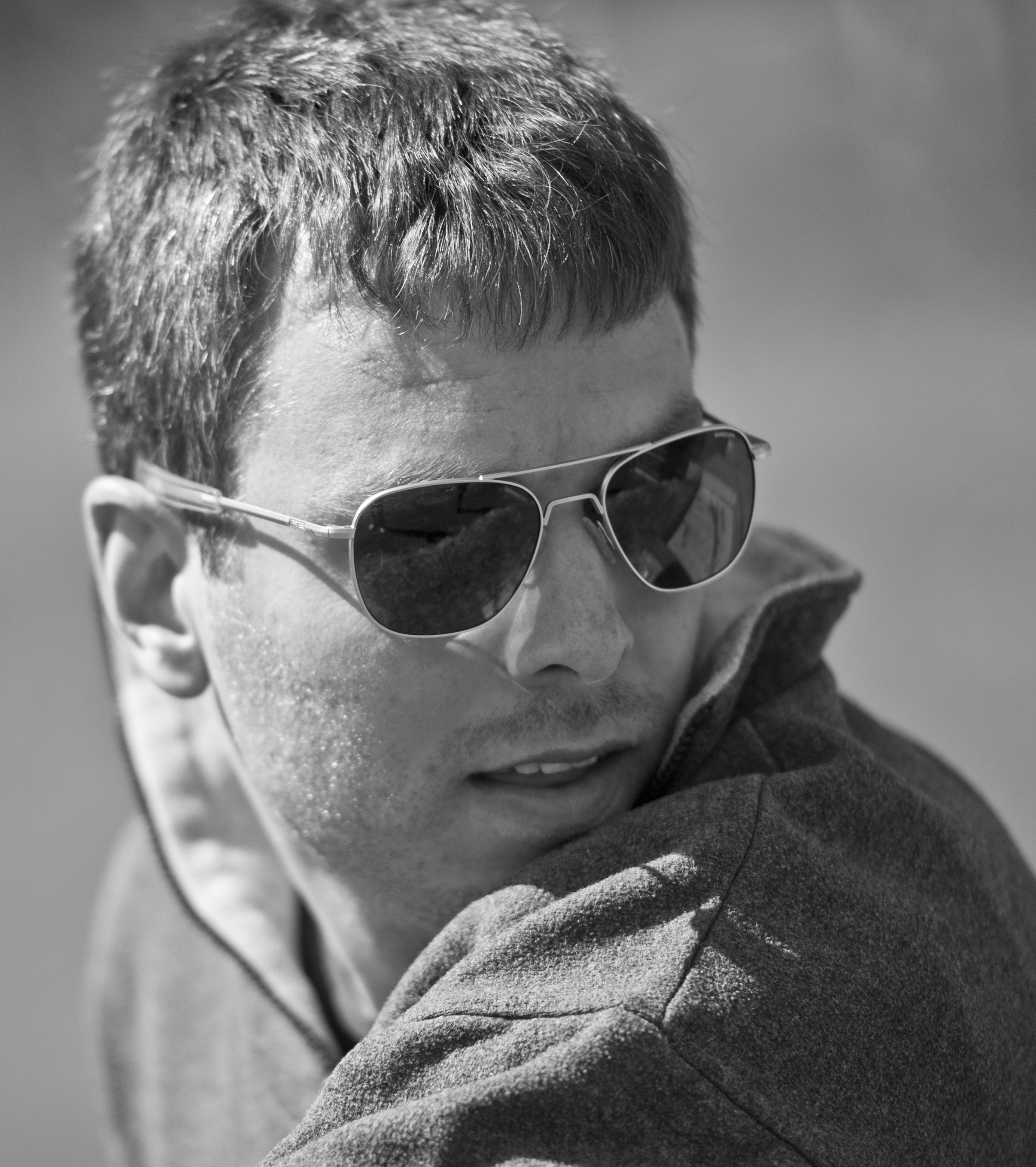![[RSS]](/static/img/feed-icon-14x14.2168a573d0d4.png) Conservancy Blog
Conservancy Blog
Displaying posts
tagged supporter
![]()
Matcher interview with Justin Flory
by on November 30, 2022

Photo CC-BY Justin W. Flory
This year for our fundraising season, we are highlighting some of the incredible donors contributing to our matching fund (of $104,759!!). First up in our interview series is Justin W. Flory who has generously provided matching funds. He has repped Software Freedom Conservancy at a lot of recent conferences and it's always exciting to see him handing out our stickers and speaking to people about it. We were so happy to catch up with them and see what drives his passion behind software freedom and ethical technology.
Software Freedom Conservancy: Why do you care about software freedom? How long have you been involved?
Justin W. Flory: My trajectory in life and career for the last eight years was molded by the Software Freedom movement. As a teenager, I used Linux and Open Source software to run my own multiplayer game server for Minecraft. This exposed me both to open source as a concept but also the communities responsible for the production of great things made together with others. Fundamentally, my interest and passion for Free Software come from a human-centered perspective as a method to build more responsible technology for and by society.
SFC: How do you use free software in your life?
JF: I run Fedora Linux since 2014. It began with my first personal laptop that I received as a high school student. Subsequently, since the Fedora Project only ships Free & Open Source software, libraries, and codecs by default, I have been exposed to a wide range of open tools and services. Since October 2022, I am now working full-time at Red Hat on the Fedora Project. We use a hosted Matrix server from Element for our community chat and a Discourse forum for project discussions. I am an ardent user of Firefox for many years, including my extensive self-made categorization system and library of bookmarks covering several topic areas.
SFC: On the spectrum on developer to end user, where do you lie? And how do you think we could do better bridging that divide?
JF: Somewhere in the middle. Today I work as a Community Architect, but I previously worked in systems engineering and received a degree in networking & systems administration. Being a community person in a project like Fedora requires me to wear both the developer and end-user hat, both for our actual users and the people who participate in many different capacities in the project.
SFC: What is it that you see Software Freedom Conservancy does that other groups are not?
JF: The SFC are the hidden heroes of the Software Freedom movement. I love the breadth of issues that the Conservancy addresses that are of particular relevance to the survival of the Software Freedom movement. The critically-important work of enforcing reciprocal licenses guarantees the promise of Free Software licenses and ensures that licensors of copyleft software have their rights respected. Additionally, the creation and sustenance of the Outreachy program introduces numerous people of many diverse backgrounds to the movement. Outreachy opens doors for others to become a part of the young story of Free Culture and Free Software.
For a lover and supporter of Free Software, I do not see any charity or foundation that has as much of a profound impact in the ecosystem as the Conservancy.
SFC: How do you see our role amongst the various FLOSS organizations?
JF: The SFC does both the hidden labor that strengthens the foundations of FLOSS as well as key advocacy and activism to further the collective interests of the movement. The activism includes copyleft compliance work (e.g. Vizio suit) and directly supporting the many member projects supported by the Conservancy.
SFC: What's got you most excited from the past year of our work?
JF: I participated as an Outreachy mentor for the first time since 2019 and I was so excited by how the Conservancy is growing the team around Outreachy. Getting back in as a mentor helped demonstrate to me how much care and empathy the Conservancy builds into how Outreachy is handled. It might not be new work, but it is work that has a high value to me and I definitely felt grateful for it in 2022.
SFC: Do you think we are doing a good job reaching a wider audience and do you see us at places you expect?
JF: I think COVID has made this difficult, and the most recent fragmentation of Twitter compounds it. I think Copyleft Conf filled an important space in the ecosystem, and I am hopeful for its return to continue filling this space and bringing people back together again on important issues.
SFC: Have you been involved with any of our member projects in the past?
JF: I have not participated directly, but I am the user of several projects like git, Inkscape, and Etherpad.
SFC: What other organizations are you supporting this year?
JF: I am also supporting two other organizations, Green Card Voices and the Rail Passengers Association.
Green Card Voices is a U.S. non-profit organization dedicated to build inclusive and integrated communities between immigrants and their neighbors through multimedia storytelling, and Rail Passengers Association advocates on behalf of America's rail passengers for improved, expanded, and safer train service.
Justin W. Flory is one of our individual matchers this year. He is originally from the Greater Atlanta Area in the United States. Travel is one of his passions, especially traveling by rail. He knows a profuse amount about espresso and coffee, and once studied the secrets of wine from a Croatian winemaker. Music is one of his favorite artistic expressions and he curates both a physical and digital music collection. It isn't surprising when he ends up flipping through crates at a record store. The best way to find him online is through his blog at blog.jwf.io.
Thanks to all of our donors, Conservancy met our match challenge!
by on January 15, 2021
We're pleased to report that with your help we did it! This year's match challenge of $111,029 was the first posed entirely by individuals (and not companies) who care deeply about software freedom. The bulk of this match challenge was provided by one very generous donor who prefers to remain anonymous. Their amount was augmented by six Conservancy Supporters who came together to increase the match even more. Conservancy thanks (in alphabetical order) Jeremy Allison, Kevin P. Fleming, Roan Kattouw, Jim McDonough, Allison Randal and Daniel Vetter.
We also thank every person who donated this season. Whether it was $42, $120, $128, $512 or any other amount, your donation helps us continue our work to fight for software freedom! We can only do this work because you support us. We cannot wait to see everything we can get done together in 2021!
Interview with Matcher and Conservancy Board member Jeremy Allison
by on January 14, 2021

Jeremy Allison. Photo © Jeremy Allison, licensed CC BY-SA 4.0
A generous group of individuals has banded together to increase the amount of our match donation. This post is part of a series of interviews where these extraordinary folks tell us about why they care about software freedom and why they support Conservancy
We asked Jeremy Allison to describe himself for this interview, and he described himself as "a tedious audiophile who torments his friends with esoteric speaker trivia. He also likes to write C code and tries really hard not to put security holes in it. He co-founded the Samba project, whose list of CVE reports shows he is failing at this task. For some odd reason, Google thinks he is worth employing."
Q: How did you first get interested in software freedom?
A: I first got interested when I read the GNU Manifesto, back in the late 1980's. I don't know if was the "Astroid Mining" part that took my fancy, but it seemed like the right thing to do as learned in primary school - "Sharing is good !".
Also I grew up in the UK at a time where there was a great diversity of computing platforms many of which encouraged hacking. There was even a laptop that ran Forth as it's primary language rather than BASIC ! The spirit of wanting to be able to understand and work on the code that runs our lives never left me.
Q: How did you get started with Samba and why did Samba join Conservancy?
A: I was the person who submitted the first patch to Andrew Tridgell's (tridge) project (smbserver) that became Samba. I never looked back after that. I have to be honest, but Samba joined Conservancy because neither tridge or I wanted anything to do with non-technical things, and Conservancy seemed the easiest and lazyist way of getting other people to do these things. I now know that's not true, but it seemed a good idea at the time :-).
You've been on the board of Conservancy for a long time - what's that like?
A: The people who contribute to it are what make Conservancy. I know the projects are great, but the staff and other Board members are *AMAZING* ! It's an education and a privilage working with them. I love helping out and I hope to be able to do so for a long time to come.
Q: Why do you think people should contribute to Conservancy?
A: Conservancy's work has never been more important. More and more computing platforms are moving to locked down, proprietary code (sadly sometimes even based on top of Free Software).
The right to understand, to learn, to tinker and modify the code that runs all of our lives has never been under more risk. Please help conservancy do its vital work of continuing to fight for the freedoms I took for granted in my youth.
If we lose them, we'll all be the poorer for it !
Software Freedom Conservancy is in the final days of its annual fundraiser. Please help us continue our work by becoming a Supporter. Donate now and have your donation matched by a group of generous individuals who care deeply about software freedom.Your donation could push us over the top to meet our goal!
Interview with Matcher Daniel Vetter
by on January 13, 2021

Portrait of Daniel Vetter. Photo © Roland Beck, licensed CC BY-SA 4.0
A generous group of individuals has banded together to increase the amount of our match donation. This post is part of a series of interviews where these extraordinary folks tell us about why they care about software freedom and why they support Conservancy.
Daniel Vetter works on making graphics drivers better on Linux. At first largely by improving the code, nowadays he's focused on doing this by trying to build a better community.
Q: How did you first get interested in software freedom?
A: I've followed Linux for a long time, out of technical curiosity, but never really participated actively. Until the new graphics driver stack didn't work on my laptop, and I tried to fix it up somehow. But what got me hooked wasn't so much the technical challenges, but users being really happy about my patches and them very enthusiastically testing all the broken versions I create since I didn't understand much at all yet. That's when I realized there's a real impact on people, and that impact on people is also what keeps me going more than 10 years later trying to improve our community.
Q: Can you talk a little about why copyleft matters?
A: In the graphics subsystem in the Linux kernel we have strict requirements for the overall driver stack, including all the pieces in userspace, so quite a bit more than what copyleft itself would require. Short term this annoys a lot of people. Long term it's the reason for our success: It's not about preventing free-loading, that's just a small short term benefit, but about preventing fragmentation. I think that having such minimal standards to enforce collaboration, whether it's community rules like the graphics subsystem has or legal enforcement through copyleft, is crucial for the continued success of a community.
Q: Do you have a favorite Conservancy member project?
A: Outreachy, because people matter. And as long as large parts of our world aren't represented in our communities, we're not going to succeed. Plus mentoring interns is just a ton of fun!
Q: Why do you think people should contribute to Conservancy?
A: I'm on the board of the X.org Foundation, which backs all the various projects around the Linux graphics stack. Running the back office of a community is lots of work behind the scenes, and Conservancy is one of the best umbrella organizations we have: Clear focus on the people, professionally run and lots of great peer projects. So besides all the awesome projects, Conservancy itself is a critical piece of infrastructure we have and which needs our support.
